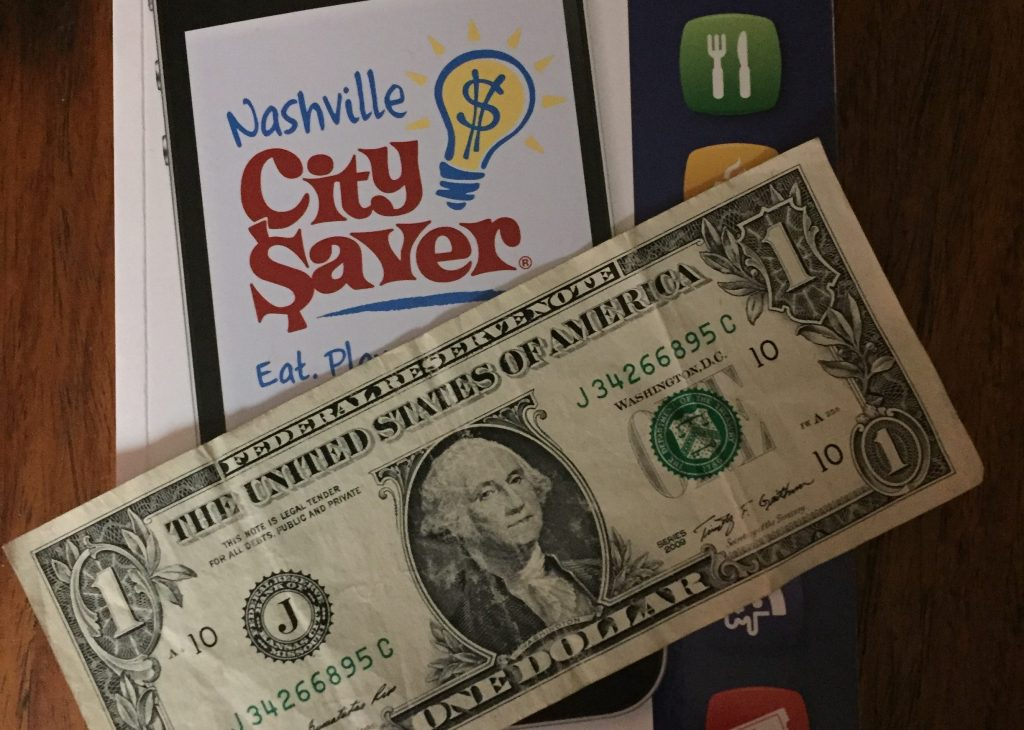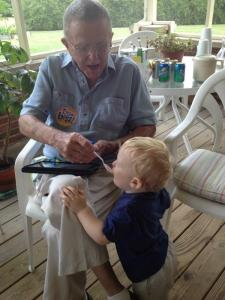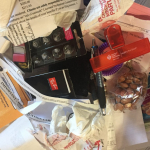On Enterprising Memories

School roared back into session just a few weeks ago, and like night follows day, it’s already here.
It’s FUNDRAISING SEASON!
And thus arrived my first opportunity to serve as the sales target of an earnest and highly focused six-year-old.
It began this way: As I walked into the room, I observed him turning to his mother for consent. “It’s OK,” my daughter affirmed. “You can ask her.” He wasted no time before launching his pitch, and no words on frilly preliminaries. Presenting himself immediately in my path, he began, “Evie, would you like to buy a City Saver book today?”
Well, I don’t know, Buddy, I replied, stalling for time while dropping into a chair to get to eye level. What’s this about?
He came forward with his sample and presented his order form. “It’s for my school. If you buy this book, you can save money, and the money goes to my school.” The flow of funds was slightly distorted in this preamble, but I got the gist. “You put your name right here,” he rolled on, pushing to close, like any good salesman. “Just write it there, and I’ll put your money in the envelope.”
I’d be happy to support your school, Buddy, I replied, but I don’t have any cash on me, and I’d rather pay with cash. Could we do this some time in the next few days? A small , serious nod followed, along with confirmation that a week or so remained before the deadline.
It’s not entirely clear whether superior follow-up was part of the sales training foisted on these pint-sized revenue generators, or just a natural part of Buddy’s tenacious nature, but every encounter over the next couple of days began with exactly the same polite reminder. “Evie,” he began again, calmly, “would you like to buy a City Saver book today?” Finally, I remembered to get cash from the ATM, and we sat down to close the transaction. I entered my name as instructed, handed over a twenty and a five, and watched while he ogled these bills of such scope to a small boy. Watching him stare, a memory came flooding back, and I wondered if there might be something more that I could offer him.
Back in the 1960s, small towns like ours in central Kentucky still had those magical, dusty emporiums known as “dime stores.” Our little town had two on Main Street, one named for history’s ultimate master of frugality, Ben Franklin. A visit to Ben Franklin was a chance to spend your allowance coins on penny candy, or select a birthday card and a matchbox car for the little brother who loved them, or just accompany a parent in search of laundry soap, a replacement frying pan, or some other essential item.
One spring afternoon when I was about seven, I joined my dad on a visit to Ben Franklin that occupied him long enough for me to wander off and browse the toy section. I stopped to stare at an old-style push carriage for a baby doll, an alluring pink plaid with shiny silver wheels, perched on a high shelf, literally and figuratively out of reach. I had gotten a new doll the previous Christmas, and how I wanted to push her in this charming little conveyance. It had a handwritten price card perched in front of it that my mind’s eye can still see to this day: $2.99. It might have been $1 million.
Except for an inspiration my father gave me.

“His gentle means of sculpting souls took me years to understand.” from Leader of the Band, by Dan Fogelberg
Locating me in the toy aisle, staring upward, Dad shooed me out the door and into the car. Maybe I was daydreaming on the way home, and through dinner, because I don’t think I said much. Just before bedtime, he called me over to his easy chair, where he was finishing the newspaper.
“Thinking about that doll buggy, hmmmm?” he asked. I nodded. “You really want it, don’t you?” Another nod. “Okay, sweetie, I’ll tell you what, I’ll make you a deal. You come up with the first $1.50, and I’ll match what you save, and we’ll get your doll that buggy. Think you can do that?”
And so the match of enterprise was lit. I can’t remember how long it took me to raise my seed capital, but it was surely many weeks. I think my allowance in those days was 15 cents a week, or maybe a dime, but I asked for, and received, extra chores to earn additional cash. I folded laundry and ran it up the steps from the basement, did extra dishes and helped my mom in the garden, and slowly my little jar begin to fill with coins that I must have counted a thousand times. When finally I reached the mountaintop, he drove me back to Ben Franklin and carried through the lesson to the very last step, insisting that I shake my own coins out of the jar onto the counter so the saleslady could count them before he laid down his money. “That’s her money, that she earned and saved,” he told the lady, who nodded her approval at me primly. I pushed the buggy on the sidewalk out to the car, my heart bursting from the joy of accomplishment and the pure greed of acquisition.
I think back on this episode now with such wonder at my father’s insight. He was a complicated and challenging man in so many ways, but strategy like this was his greatest strength and perhaps most enduring gift to his four children. It was not just the genius of teaching a seven-year-old to take charge of and work for her own desires in this world. Looking back through the smoky shadows of the decades, I remember how my heart was lifted by the simple solidarity, the shared goal, the joint effort implied by his offer. If it matters to you, he was saying, then it matters to me, too. I hear you, I care about what you care about, and I’ll walk with you to get there. I won’t carry your load for you, but I’ll share it. That’s the essence of what he said—to such a little, little girl. He and I, we were in it together.
Isn’t that all we want in this life?
And so, across my dining room table the other day, I finished completing my rows on the order form, handed Buddy the pen back and asked him some questions. How many books are you hoping to sell? He looked a bit uncertain. Do you have a sales goal? Still no answer, but I could tell he was pondering it. I tried a different tack. What happens if you sell them? This rang the right bell, and I got a litany of possible prize options for sales achieved. I asked if three would be a good goal, and he nodded that it would.
Well, you did a good job selling me one, I said, so I’ll make you an offer: if you sell another one, I’ll sell a third one for you, and that will get you to three. But you have to sell the next one first, understand? I won’t do my sale until you get your next one.
He signified agreement with this, though I could see, deep in Buddy’s highly analytical mind, he was wondering what was in it for me. Nevertheless, he persisted, nailing his next sale with his indulgent aunt, and it was time to uphold my end. I invested in the past in fundraisers for the children of a work friend, so I tapped her for a easy yes, and the deal was done. Buddy sold another book to his mom, turned in his money, and collected his prizes.
Will he remember that I helped get him there? Who knows? I’ll probably get another chance to work the Matching Grant idea again for some future endeavor. I bet it will work like a charm with his younger sister, who never saw an activity attempted by her brother that she wouldn’t hurl herself at like a Major League fastball.
As to what’s in it for me, in addition to all those coupons? It’s just a chance to pay forward a gift I was given a very long time ago, a chance to show, in real time, how a challenge is lightened when it is shared. And the chance to pass that on to this enterprising young fellow, so intent on everything he does, is a gift, in itself, to me.



Nice. Taking the time to teach a valuable lesson is priceless.